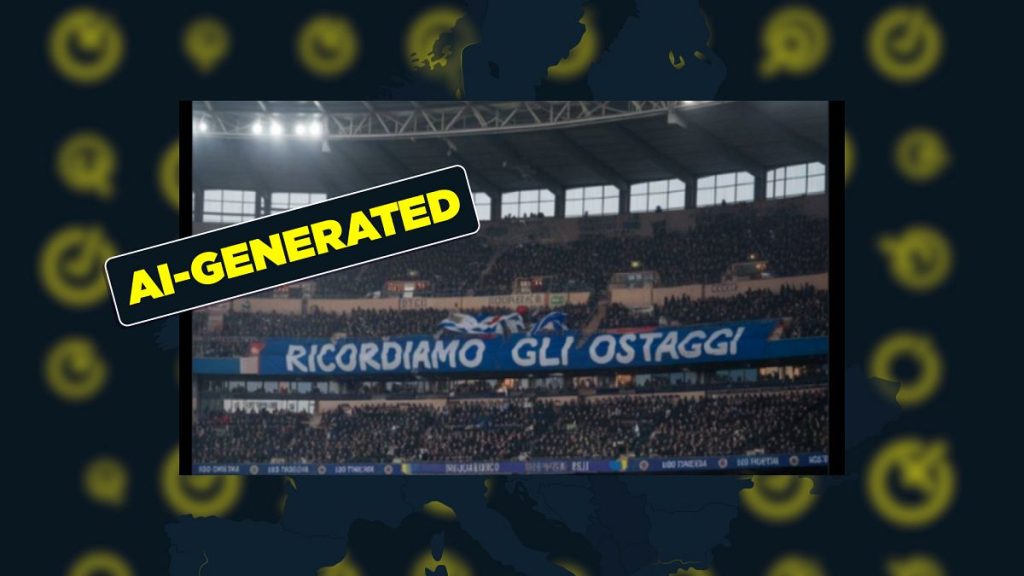The conflict in the Middle East has become a target for misinformation and digitally manipulated images online, as seen in the aftermath of Italy’s 4-1 victory over Israel in a Nations League game. Following the match, an AI-generated image circulated on social media, depicting Italian fans holding a banner in support of Israel. However, various clues indicate that the image is fabricated, such as distorted players, illegible text, and differences in the stadium’s appearance. The game itself was overshadowed by security concerns due to the ongoing conflict in the region, with tensions evident in the crowd’s reaction during the match. Despite the controversy, the match proceeded with tight security measures in place to ensure the safety of all attendees.
The AI-generated image that circulated online following the Italy-Israel Nations League game highlights the prevalence of misinformation and manipulated content in the digital landscape. While the real game saw Italy emerge victorious with a 4-1 win, the fabricated image falsely portrayed Italian fans displaying solidarity with Israel. However, discrepancies in the image, such as distorted players and inconsistencies in the stadium’s details, indicate that it was not an authentic representation of the event. This incident underscores the need for critical evaluation of information circulated online, particularly in sensitive contexts like conflicts in the Middle East.
The tension surrounding the conflict in the Middle East was palpable during the Italy-Israel Nations League game, with security concerns prompting stringent measures to ensure the safety of all attendees. The match, which took place in Udine, saw a lower than usual attendance, with fewer than 12,000 tickets sold in the 25,000-seater stadium. Security measures included armed military personnel on the roof of the stadium, restricted access around the venue, and rigorous checks for fans entering the stadium. The heightened security presence reflected the significance of the match in light of the ongoing conflict in the region.
Despite the security concerns and tense atmosphere surrounding the Italy-Israel game, both teams and fans attempted to maintain the spirit of sportsmanship. While there were reactions from some fans during the playing of the Israeli anthem, supportive gestures like applause and chants from both sets of supporters sought to create a positive environment within the stadium. The visible presence of a group of Israel fans chanting in support of their team added to the atmosphere of unity and camaraderie among spectators. Amidst the complexities of the conflict in the Middle East, moments of solidarity and sportsmanship emerged during the match.
The intersection of sports and geopolitics was evident during the Italy-Israel Nations League game, with the shadow of the Middle East conflict looming over the event. Belgium’s refusal to host a game against Israel due to security concerns underscored the challenges faced by international sporting events in the context of ongoing conflicts. The decision to proceed with the game in Udine, despite security precautions and tensions among some spectators, highlighted the resilience of sports diplomacy in fostering connections and promoting peaceful interactions. The presence of diverse voices and perspectives at the match reflected the complexity of navigating geopolitical issues within the realm of sports.
In the aftermath of the Italy-Israel game, the circulation of an AI-generated image served as a reminder of the risks of misinformation and manipulated content in online spaces. Despite the false portrayal of Italian fans displaying support for Israel in the fabricated image, the real match exhibited moments of unity, respect, and camaraderie among players and supporters. The security measures and reactions from fans during the game underscored the sensitivity of addressing geopolitical conflicts in sporting contexts. Moving forward, critical evaluation of digital content and the promotion of inclusivity and dialogue in sports can help navigate complex geopolitical issues and foster understanding among diverse communities.


